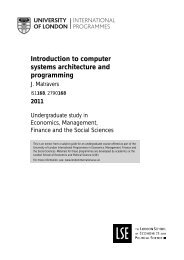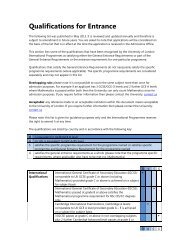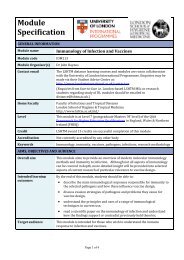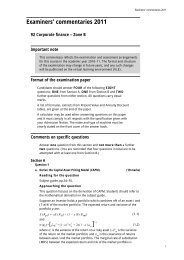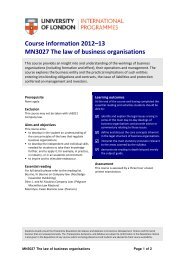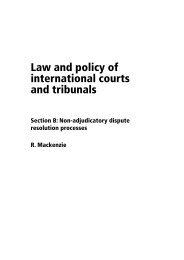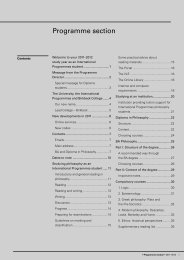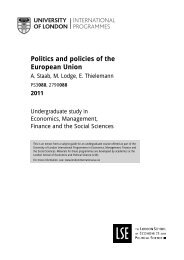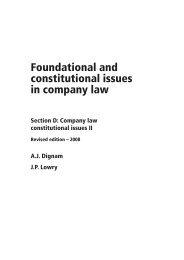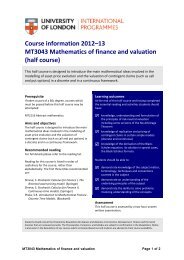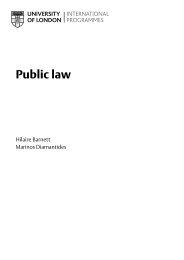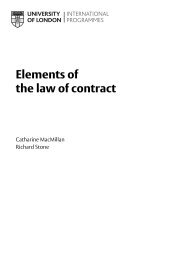Principles of sociology - University of London International ...
Principles of sociology - University of London International ...
Principles of sociology - University of London International ...
Create successful ePaper yourself
Turn your PDF publications into a flip-book with our unique Google optimized e-Paper software.
21 <strong>Principles</strong> <strong>of</strong> <strong>sociology</strong><br />
36<br />
we are social beings, we are never completely ‘taken over’ by society in the<br />
manner suggested by Parsons, society is the source <strong>of</strong> both our conformity<br />
and our individuality.<br />
Activity 1.14 Parsons and Mead<br />
In this section on socialisation and identity, we implicitly touched on some <strong>of</strong> the ideas <strong>of</strong><br />
Parsons and Mead. See if you can identify any <strong>of</strong> them. It is a good way to help you clarify<br />
your understanding and revise the ideas we have looked at here.<br />
Activity 1.15<br />
Look back at Activity 1.2 on p.14. Try to answer the questions again. Compare your<br />
answers now with the ones you wrote at the start <strong>of</strong> the chapter. It is a good way <strong>of</strong><br />
monitoring your progress.<br />
Summary<br />
Socialisation describes the processes by which people learn social<br />
behaviour. It is through socialisation that people develop a sense <strong>of</strong> social<br />
and personal identity, and these identities can change through social<br />
interaction. Whereas Parsons saw socialisation arising from internalisation<br />
<strong>of</strong> social norms, Mead suggested it arose primarily from people’s ability to<br />
take the role <strong>of</strong> the other.<br />
We shall be returning to the theories <strong>of</strong> Parsons and Mead in Chapter 4,<br />
sections 4.2 and 4.3.<br />
Reading<br />
Here it is important that you supplement what you have read on socialisation and identity<br />
with some textbook reading. The relevant sections from introductory texts are:<br />
Fulcher and Scott (2007) Chapter 4.<br />
Giddens (2008) pp.22–24, pp.163–69 and p.238<br />
Macionis and Plummer (2005 and 2008 editions) Chapter 7.<br />
This will provide you with some essential building blocks for you to<br />
develop your sociological awareness and to give you the necessary support<br />
for reading the more difficult work in Chapter 4 and for your chosen topic<br />
in Section C.<br />
A reminder <strong>of</strong> your learning outcomes<br />
Having completed this chapter, and the Essential reading and Activities,<br />
you should:<br />
• know how to study <strong>sociology</strong>, what is meant by active learning, and<br />
what examiners will be looking for<br />
• be able to describe what sociologists study<br />
• be able to identify some <strong>of</strong> the key ways that <strong>sociology</strong> gives us insights<br />
that go beyond commonsense understanding<br />
• be able to explain what is meant by thinking sociologically and<br />
sociologists’ interest in social order, social change and the relationship<br />
between the individual and society<br />
• be able to explain how our identities arise from social relationships<br />
• be able to describe what sociologists mean by socialisation and identity,<br />
and how Parsons and Mead put forward different explanations <strong>of</strong> these<br />
processes.



